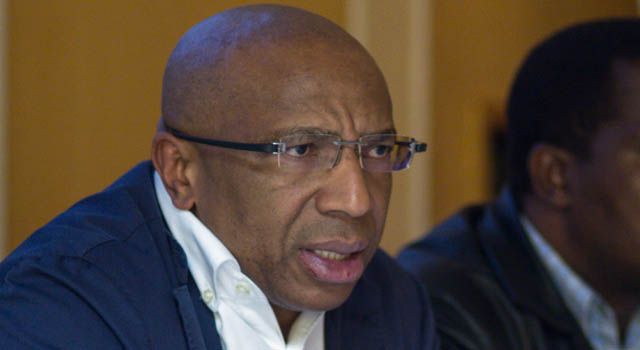 South Africans love to complain about Telkom. It’s been a national pastime for years. The customer service problems associated with the fixed-line operator are the stuff of legend — and nightmare.
South Africans love to complain about Telkom. It’s been a national pastime for years. The customer service problems associated with the fixed-line operator are the stuff of legend — and nightmare.
So, when Telkom’s CEO, Sipho Maseko, steps up to the plate and promises to fix these deep-seated problems, it’s easy to suggest he’s simply spouting empty rhetoric.
But it would be wrong to dismiss him. A palpable change in attitude and approach is sweeping through the corridors at Telkom Towers.
It’s a change born of necessity. Telkom is facing a ruthlessly competitive environment. It has lost the monopoly it once enjoyed. Across most parts of its business — undersea cables, national backhaul infrastructure, metropolitan networks — it is facing intense rivalry for the first time. And in the one area where it still has exclusivity — fixed lines in homes and businesses — it’s come up against growing competition from mobile and wireless operators.
As the resident-led fibre project in the Johannesburg suburb of Parkhurst shows, the first alternative “last mile” fixed-line providers have also started emerging.
Telkom is under enormous pressure to be leaner and meaner. Unless it starts growing its revenues, which have flatlined, more job cuts appear inevitable.
Maseko, who has held the Telkom top job since April last year, admits that he underestimated the extent of consumer unhappiness.
Fixing this must be an urgent priority if Telkom is going to defend its position not only in the retail consumer space, but also in the more lucrative business market, he says.
“Before people become your business customers, they are your consumer customers. If you can’t satisfy them there, when they find solutions on the enterprise side, they will move.”
So, how does he plan to fix it?
For one thing, customer service is being embedded in all employees’ performance contracts for the first time. “It’s an organisational measurement and forms part of how people will be rewarded,” said Maseko.
Chief operating officer Brian Armstrong says Telkom is one year into a three-year programme to ensure customer service is addressed. “There are encouraging signs, but there is still a lot to do.”
The focus in the consumer market is on how people interact with Telkom when buying services or reporting faults. There’s also a focus on making products simpler and easier to understand and addressing the technical challenges consumers face with broadband.
In the business market, the priorities are moving customers away from legacy voice and data products. It’s also focused on providing more complex value-adding services, especially in IT. Its R2,7bn bid to buy services company Business Connexion forms a cornerstone of this plan, although Armstrong says Telkom also intends building aspects of its capabilities in this area organically.

The company seems deadly serious about its objectives. It is using management research tools — based on Net Promoter scores — to determine what people find obnoxious about it and what is driving customer loyalty. It is using this information in fixes it applies.
Somewhat surprisingly, Telkom doesn’t believe that simply chopping prices will make customers react positively. Armstrong says research shows that consumers would continue substituting fixed lines with mobile even if Telkom didn’t hike line rental charges each year.
Instead, he says, the company must focus on positioning fixed lines as a premium product versus mobile alternatives by adding value-added services, especially video-on-demand content, on top of its broadband lines.
Of course, to those customers frustrated by Telkom’s inability to install lines, fix faults timeously or even simply answer its call centre phones, this means little. Fortunately for these customers, Telkom is running out of time. It has no choice but to fix its legendary customer service problem.
Not doing so would be akin to lowering the drawbridge and inviting the competition to invade.
- Duncan McLeod is editor of TechCentral. Find him on Twitter
- This column was first published in the Sunday Times




